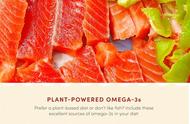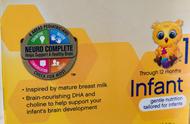
逆糖工坊系列产品的特点就是以黄金亚麻籽粉为主要原料,具有极低净碳水(低GI、GL)、高膳食纤维、富含Omega-3必需脂肪酸以及极强的可塑性的特点,满足身体营养所需又不升糖、高饱腹还可宽慰糖友们对面食、西点的渴望!
总 结
Omega-3脂肪酸是我们人体的必需脂肪酸,可以为我们带来诸多健康益处。

其实从全食物中摄取大量的Omega-3多不饱和脂肪酸并不难。但如果实在摄入不足的话,也可以选择服用Omega-3脂肪酸补充剂。
对于正在服用其他药物的朋友们需要注意的一点是,必须先征询医生的意见,是否适合在日常生活中补充Omega-3脂肪酸。
- end -
撰文:Yee Ling
编辑:Rocky
参考文献:
1. Shidfar, F., et al., Effects of omega-3 fatty acid supplements on serum lipids, apolipoproteins and malondialdehyde in type 2 diabetes patients. East Mediterr Health J, 2008. 14(2): p. 305-13.
2. Oliveira, J.M. and P.H. Rondo, Omega-3 fatty acids and hypertriglyceridemia in HIV-infected subjects on antiretroviral therapy: systematic review and meta-analysis. HIV Clin Trials, 2011. 12(5): p. 268-74.
3. Cazzola, R., et al., Age- and dose-dependent effects of an eicosapentaenoic acid-rich oil on cardiovascular risk factors in healthy male subjects. Atherosclerosis, 2007. 193(1): p. 159-67.
4. Ramel, A., et al., Moderate consumption of fatty fish reduces diastolic blood pressure in overweight and obese European young adults during energy restriction. Nutrition, 2010. 26(2): p. 168-74.
5. Bernstein, A.M., et al., A meta-analysis shows that docosahexaenoic acid from algal oil reduces serum triglycerides and increases HDL-cholesterol and LDL-cholesterol in persons without coronary heart disease. J Nutr, 2012. 142(1): p. 99-104.
6. Singh, R.B., et al., Effect of an Indo-Mediterranean diet on progression of coronary artery disease in high risk patients (Indo-Mediterranean Diet Heart Study): a randomised single-blind trial. Lancet, 2002. 360(9344): p. 1455-61.
7. Miyoshi, T., et al., Omega-3 fatty acids improve postprandial lipemia and associated endothelial dysfunction in healthy individuals - a randomized cross-over trial. Biomed Pharmacother, 2014. 68(8): p. 1071-7.
8. Robinson, L.E. and V.C. Mazurak, N-3 polyunsaturated fatty acids: relationship to inflammation in healthy adults and adults exhibiting features of metabolic syndrome. Lipids, 2013. 48(4): p. 319-32.
9. Ebrahimi, M., et al., Omega-3 fatty acid supplements improve the cardiovascular risk profile of subjects with metabolic syndrome, including markers of inflammation and auto-immunity. Acta Cardiol, 2009. 64(3): p. 321-7.
10. Calder, P.C., n-3 polyunsaturated fatty acids, inflammation, and inflammatory diseases. Am J Clin Nutr, 2006. 83(6 Suppl): p. 1505s-1519s.
11. Li, H., et al., EPA and DHA reduce LPS-induced inflammation responses in HK-2 cells: evidence for a PPAR-gamma-dependent mechanism. Kidney Int, 2005. 67(3): p. 867-74.
12. Kiecolt-Glaser, J.K., et al., Omega-3 supplementation lowers inflammation and anxiety in medical students: a randomized controlled trial. Brain Behav Immun, 2011. 25(8): p. 1725-34.
13. Simopoulos, A.P., Omega-3 fatty acids in inflammation and autoimmune diseases. J Am Coll Nutr, 2002. 21(6): p. 495-505.
14. Bouzianas, D.G., S.D. Bouziana, and A.I. Hatzitolios, Potential treatment of human nonalcoholic fatty liver disease with long-chain omega-3 polyunsaturated fatty acids. Nutr Rev, 2013. 71(11): p. 753-71.
15. Parker, H.M., et al., Omega-3 supplementation and non-alcoholic fatty liver disease: a systematic review and meta-analysis. J Hepatol, 2012. 56(4): p. 944-51.
16. Theodoratou, E., et al., Dietary fatty acids and colorectal cancer: a case-control study. Am J Epidemiol, 2007. 166(2): p. 181-95.
17. Zhong, X., et al., Dietary fat, fatty acid intakes and colorectal cancer risk in Chinese adults: a case-control study. Eur J Cancer Prev, 2013. 22(5): p. 438-47.
18. Terry, P.D., J.B. Terry, and T.E. Rohan, Long-chain (n-3) fatty acid intake and risk of cancers of the breast and the prostate: recent epidemiological studies, biological mechanisms, and directions for future research. J Nutr, 2004. 134(12 Suppl): p. 3412s-3420s.
19. Fabian, C.J., B.F. Kimler, and S.D. Hursting, Omega-3 fatty acids for breast cancer prevention and survivorship. Breast cancer research : BCR, 2015. 17(1): p. 62-62.
20. Montgomery, P., et al., Fatty acids and sleep in UK children: subjective and pilot objective sleep results from the DOLAB study--a randomized controlled trial. J Sleep Res, 2014. 23(4): p. 364-88.
21. Hansen, A.L., et al., Fish consumption, sleep, daily functioning, and heart rate variability. Journal of clinical sleep medicine : JCSM : official publication of the American Academy of Sleep Medicine, 2014. 10(5): p. 567-575.
22. Spencer, E.H., H.R. Ferdowsian, and N.D. Barnard, Diet and acne: a review of the evidence. Int J Dermatol, 2009. 48(4): p. 339-47.
23. McCusker, M.M. and J.M. Grant-Kels, Healing fats of the skin: the structural and immunologic roles of the ω-6 and ω-3 fatty acids. Clinics in Dermatology, 2010. 28(4): p. 440-451.
24. Anderson, G.J., W.E. Connor, and J.D. Corliss, Docosahexaenoic acid is the preferred dietary n-3 fatty acid for the development of the brain and retina. Pediatr Res, 1990. 27(1): p. 89-97.
25. Merle, B.M., et al., Circulating omega-3 Fatty acids and neovascular age-related macular degeneration. Invest Ophthalmol Vis Sci, 2014. 55(3): p. 2010-9.
26. Lim, L.S., et al., Age-related macular degeneration. Lancet, 2012. 379(9827): p. 1728-38.
27. Mozaffari-Khosravi, H., et al., Eicosapentaenoic acid versus docosahexaenoic acid in mild-to-moderate depression: a randomized, double-blind, placebo-controlled trial. Eur Neuropsychopharmacol, 2013. 23(7): p. 636-44.
28. Ginty, A.T. and S.M. Conklin, Short-term supplementation of acute long-chain omega-3 polyunsaturated fatty acids may alter depression status and decrease symptomology among young adults with depression: A preliminary randomized and placebo controlled trial. Psychiatry Research, 2015. 229(1): p. 485-489.
29. Fotuhi, M., P. Mohassel, and K. Yaffe, Fish consumption, long-chain omega-3 fatty acids and risk of cognitive decline or Alzheimer disease: a complex association. Nat Clin Pract Neurol, 2009. 5(3): p. 140-52.
30. Mohajeri, M.H., B. Troesch, and P. Weber, Inadequate supply of vitamins and DHA in the elderly: implications for brain aging and Alzheimer-type dementia. Nutrition, 2015. 31(2): p. 261-75.
31. Judge, M.P., O. Harel, and C.J. Lammi-Keefe, Maternal consumption of a docosahexaenoic acid-containing functional food during pregnancy: benefit for infant performance on problem-solving but not on recognition memory tasks at age 9 mo. Am J Clin Nutr, 2007. 85(6): p. 1572-7.
32. Helland, I.B., et al., Maternal supplementation with very-long-chain n-3 fatty acids during pregnancy and lactation augments children's IQ at 4 years of age. Pediatrics, 2003. 111(1): p. e39-44.
33. Strickland, A.D., Prevention of cerebral palsy, autism spectrum disorder, and attention deficit-hyperactivity disorder. Med Hypotheses, 2014. 82(5): p. 522-8.
【声明】本原创内容作为知识分享和信息交流,仅代表个人观点。由于每个人身体状况及患病情况存在差异,文章内容不可取代专业医疗建议。请大家根据自身健康状况理智作出选择。
看完就完事啦?

原创不易,觉得好看
记得点个赞再走哦~
如果觉得有用,
一键“转发”让更多人看到吧~













